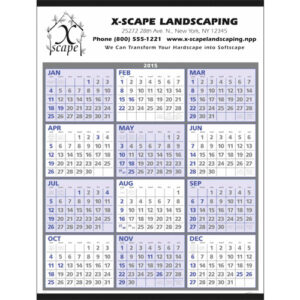Planning Sermons Far Ahead
Planning Sermons Far Ahead
 Planning sermons far ahead can give you an edge in the preaching practice. We turn to that now from the previous posts on looking like our audience. I have a friend who doesn’t plan far ahead at all. He is now retired, but while active in his church, he had a practice of beginning his Sunday morning sermon on Saturday afternoon. He would do the research, then write, and would finish whenever he finished, even if it was 2 am on Sunday morning. At that time, he also preached an evening sermon, and would begin that on Saturday afternoon. Needless to say, this was stressful. In fact, I cannot imagine the stress of this kind of practice. I would always have my sermon written on Thursday, and practice it in Saturday.
Planning sermons far ahead can give you an edge in the preaching practice. We turn to that now from the previous posts on looking like our audience. I have a friend who doesn’t plan far ahead at all. He is now retired, but while active in his church, he had a practice of beginning his Sunday morning sermon on Saturday afternoon. He would do the research, then write, and would finish whenever he finished, even if it was 2 am on Sunday morning. At that time, he also preached an evening sermon, and would begin that on Saturday afternoon. Needless to say, this was stressful. In fact, I cannot imagine the stress of this kind of practice. I would always have my sermon written on Thursday, and practice it in Saturday.
Benefits of Planning Sermons Ahead
There are many benefits of planning ahead, even up to a year or more. Here are some of those benefits:
- It lessens stress. You are more likely to feel relaxed as you approach each week when you are planning
 sermons far ahead of the scheduled date.
sermons far ahead of the scheduled date. - It will save you time. You won’t waste time each week trying to figure out what’s coming next.
- If you have a group in your church that plans other aspects of worship (music, drama, videos, design of the preaching place), they will have time to do their job well.
- When you are planning sermons far ahead of the date, it will allow you to think of other things that might move your congregation along. For instance, you might think of small group materials. At one point in my ministry we had all small groups gathering to discuss the sermon each week. It was a time for spiritual growth for the church.
How To Go About Planning Sermons Far Ahead
Here is a general perspective.
Time
- Set aside time. This is going to take awhile to plan it well. Before you actually engage in the time planning, get the materials together that you will need. You may want to do a series as a result of a book you’ve read, or a podcast you’ve listened to. Make sure you have all your notes. Side note: Sometimes I would go away from the church office to do this so that I wouldn’t be distracted by the flow of people in and out. There are often retreat centers that will give you free space, or you can get a hotel room or the cottage of someone you know.
Time-Frame
- Set your time frame. Some pastors schedule a year at a time. I was never that disciplined. I found three months was the ideal for me to be specific, though I had a general flow of the year in mind.
- List the preaching dates, either on a sheet of paper, or a whiteboard.
- Note all the special events/days. Is it Advent? That may affect your sermon choices. Is it Lent? Are there holidays like Memorial or Labor Day?
Prayer
- Now spend some time in prayer, asking God to work through your work to speak to your church through your planning.
The Plan
- Begin with the special days. What will you do to acknowledge and capitalize on those days.

- Then plot the sermons that you know you’d like to preach. Sometimes, if you preach following the lectionary, the scripture passages will be recommended. If you preach through a book or section of Scripture, you can plot out the number of sermons you can expect to preach. If it is a topical series (like dealing with depression, or what the Bible says about the Church), you can list all the topics you want to cover during that time.
- Now put them on the list of preaching days.
My General Plan for Sermon Series
I usually planned broadly for the year, and then specifically for three months, as I indicated earlier. Broadly, the schedule looked like this:
- New Years’ season–short series on the new, what’s coming this year, etc.
- Topical series between New Years’ and the beginning of Lent.
- Lenten series.
- Series on a book or section of Scripture until summer.
- Summer topical series.
- Fall Vision series, focusing us as a church on God’s plan for our c
 hurch.
hurch.
Make sure you put your vacation time in the calendar as well.
Note: Sometimes it is very helpful to brainstorm with another pastor or two, sharing the study work for passages, illustrations, etc.
I write this as the summer begins. Start thinking about the coming year, what you want to preach to your congregation. Planning sermons far ahead will enrich your preaching.
Here’s another example of one of my favorite authors on preaching.
We’ll look at some other specifics in the next post.



